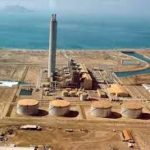 Reportedly management of The Hub Power Company (HUBC) has proposed selling off of its 1,200MW Base Plant. The management has proposed to the Government of Pakistan (GoP) to buy the plant at a transaction price of Rs65 billion (Rs50/share).
Reportedly management of The Hub Power Company (HUBC) has proposed selling off of its 1,200MW Base Plant. The management has proposed to the Government of Pakistan (GoP) to buy the plant at a transaction price of Rs65 billion (Rs50/share).
HUBC reported profit after tax of Rs10.2 billion (EPS: Rs7.84) for FY20, as per the unconsolidated financial statements. However, the unconsolidated earnings reflect the dividend income from subsidiaries, as well as finance cost in lieu of expansion projects. Henceforth, analysts rule out using unconsolidated book value Rs43 billion or Rs33 per share as the way to go about valuing the Base plant. Instead, they discount the operating profit from the Base Plant (capacity payments less operating expenses), arriving at a value of Rs87 billion or Rs67 per share. Future cashflows alone from Base plant are thus noticeably above the proposed transaction price. Adding the net receivables (trade debts receivable from NTDC less payables to PSO) estimated at around Rs19 billion or Rs15 share. Meanwhile, the reported plant, property and equipment’s value is estimated at Rs12 billion or Rs9 per share. Hence forth, summing the PV of future cashflows, net receivables and plant’s value, the 1,200MW Base plant is valued at Rs91 share.
A question arises, why would management propose a discounted transaction price? According to AKD Securities, the management seems to have proposed a lower value for the sale of Base plant due to uncertainty on realizing capacity payments for the remaining period of PPA (FY21-FY27). The power sector is undergoing major reforms, where the recent power sector inquiry reports’ recommendations reportedly include: 1) clawback mechanism for future excess profit that were included in MoUs with 2002 IPPs, 2) switch from USD to PKR based return, a major feature of all MoUs signed with IPPs, 3) shifting tariff regime to take and pay structure, also part of the MoUs with 2002 IPPs and 4) recovery of excess profits made, if any. As an update, conversion of MoUs into final agreements is also in rough waters, whereas per news reports the IPPs are demanding at least 75% clearance upfront. Meanwhile, GoP is proposing 25-30% of upfront payment, with the remaining payment in two installments over next two years. The GoP is adamant on amending the existing PPAs to contain circular debt accretion, going forward.
In the aforementioned context, even a discounted price seems to be a great way out for HUBC base plant. However, analysts fail to see how the management would respond to SAPM’s counter proposal that include: 1) coal conversion and water desalination plants, as well as 2) sell-off of assets of Base plant, all in return of Rs65 billion. The CAPEX for coal conversion of 600MW itself should come around Rs36 billion or Rs27 per share (US$1.5/MW cost approved by NEPRA for KEL in 2015). From the counter proposal, the GoP seems to be disregarding any future cashflows from the Base plant, only taking the plant’s scrap value and net receivables Rs24 share in consideration. While analysts await granular details on the proposal, the negotiation power seems to be in GoP’s hands for the time being.
As per current valuation undertaken by AKD Securities for HUBC is based on dividend discount model, where the brokerage house has forecasted payouts on the basis of consolidated free cash flow to equity. For the purpose of assessing HUBC’s value sans 1,200MW base plant, the brokerage house has valued individual projects based on present value of RoEs less equity financing (debt principal as well as interest payments), arriving at SoTP based valuation of Rs88 per share. Adding immediate settlement of net receivables of Rs22 per share (Rs109 billion trade debts less Rs80 billion of payables as of June 2020), gives a cumulative valuation of Rs110 per share (30% upside at last close).
Materialization of sell off transaction of base plant would add another Rs50 per share to this. It remains a fluid situation at the moment, where revision of PPAs of CPEC power projects may also be on cards, posing a potential downside risk to the estimates. While analysts would continue to incorporate the developments as these happen, their back of the envelop workings suggest HUBC may be able to weather through the uncertain times.